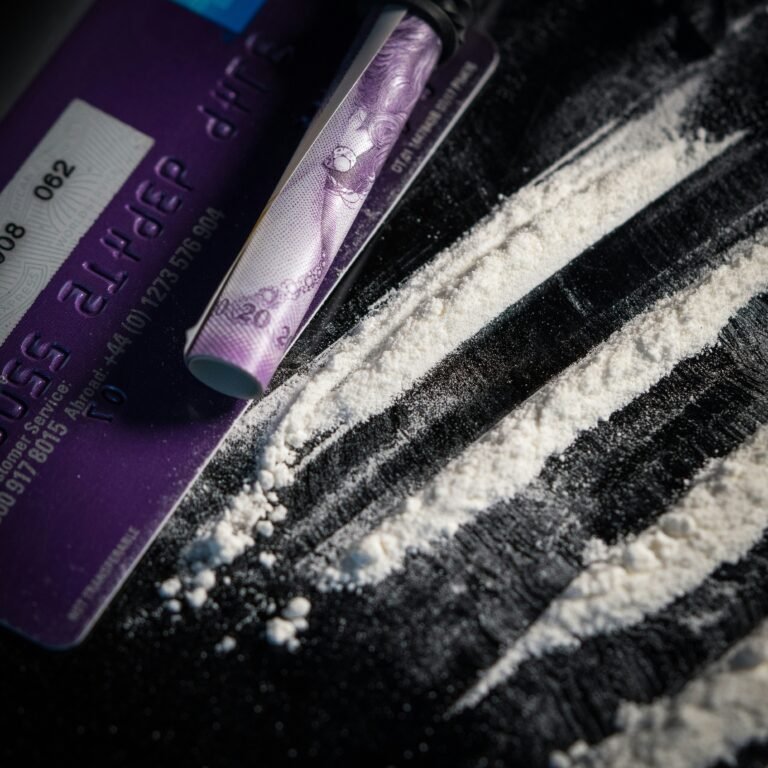Photo by Colin Davis on Unsplash
Cocaine is a powerful substance that, unfortunately, is widely used worldwide for its stimulating effects. The drug increases the levels of alertness, attention, and energy in the body, making the person feel at the top of the world (eventually resulting in them wanting to engage more often). The substance is made from the coca plant leaves commonly found in South America. Cocaine is also known as blow, coke, crack, rock, and snow due to its appearance.
The treatment for cocaine addiction involves covering all aspects that are related to or due to the addiction. It includes detox, behavior treatments, medication, and, in some cases, alternative therapies that can be used to help the individual feel better and slowly transition toward living an addiction-free life. That said, this recovery is challenging due to the devastating effects cocaine has on the body.
Here is everything to know:
The Working Mechanism of Cocaine in the Body
Cocaine instantly causes a drop in blood pressure and leads to a racing heart. The sensation is often what keeps an individual going back to using the substance.
There are different ways cocaine is consumed. It can be inhaled through the nose, smoked, dissolved into a liquid, injected, or applied to the gum directly.
Our brains are always on the lookout for happiness and pleasure. This aspect is deeply wired in our cerebral pathways, so the brain releases dopamine when a person experiences happiness.
This dopamine release causes a euphoric sensation accompanied by a feeling of being overly energized and alert.
As the cocaine-driven dopamine rush fades away, individuals start craving bursts of energy and want to indulge in cocaine consumption more often. Over time, the brain gets accustomed to the overstimulation and seeks frequent, more potent doses. It eventually results in the individual consuming cocaine more often.
Here are some effects the substance has on the body:
- Seizures (mild as well as strong)
- Hallucinations that progress gradually
- Violent behavior
- Chest pain and difficulty breathing
- Hyperthermia
- Delirium
- Loss of appetite and, subsequently, sudden weight loss
- Inability to take care of personal hygiene
- Sleeping less than usual
- Isolating oneself and avoiding interaction with family and friends
- Feeling angry or impatient for no reason at all
- Disoriented thinking
Long-term exposure can result in:
- Heart attacks
- HIV/AIDS (can be from sharing the same needles for drug administration).
- Hepatitis C
- Pneumonia
Another problem that is often seen with addicts is splurging hefty amounts of money to acquire drugs. In some cases, they are also exploited to try newer, more ‘popular’ drugs, further worsening the addiction problem. During such hunts, individuals may also end up becoming part of ‘networks’ or ‘communities’ that exclusively engage in the consumption of illicit substances.
Risks of Cocaine Addiction
As the body starts getting used to cocaine, frequent overconsumption can lead to life-threatening problems like heart attack, stroke, and epilepsy-like seizures. Other issues can range from endocarditis, cardiomyopathy, atherosclerosis, and coronary artery disease.
Cocaine consumption risks during pregnancy:
- Migraines
- Hypertensive crises
- Miscarriages
- High blood pressure
- Premature rupture of membrane
- Seizures
- Placental lining separation
- Complications during delivery
Treatment for Cocaine Addiction
Cocaine treatment is complicated, considering the extent of effects the drug has on the brain as well as the body. If you or a loved one is undergoing treatment for the problem, it can become an overwhelming experience to support them during the process.
The course of treatment usually involves the implementation of different therapies and treatment methods, with detox and withdrawal management being the first stage (and the most pivotal stage).
Bottomline
Cocaine is a harsh and potent stimulant that can significantly impact one’s well-being, including mental and physical health. The profoundly ingrained dependency makes it challenging for an individual to let go and reclaim their life. As a result, the treatment can seem overly complex to undergo. Nonetheless, adequate support and care from loved ones can be a massive driving force in such cases, enabling an individual to recover from the addiction.

Daniel J. Morgan is the founder of Invidiata Magazine, a premier publication showcasing luxury living, arts, and culture. With a passion for excellence, Daniel has established the magazine as a beacon of sophistication and refinement, captivating discerning audiences worldwide.





